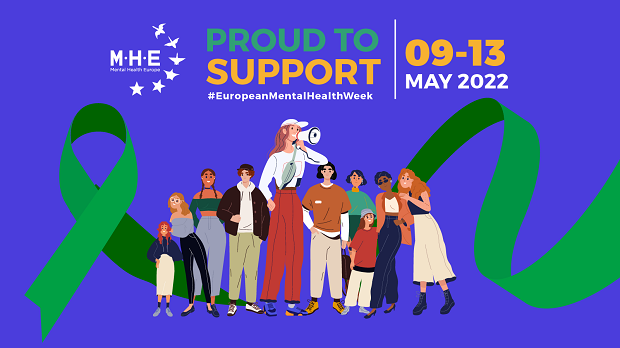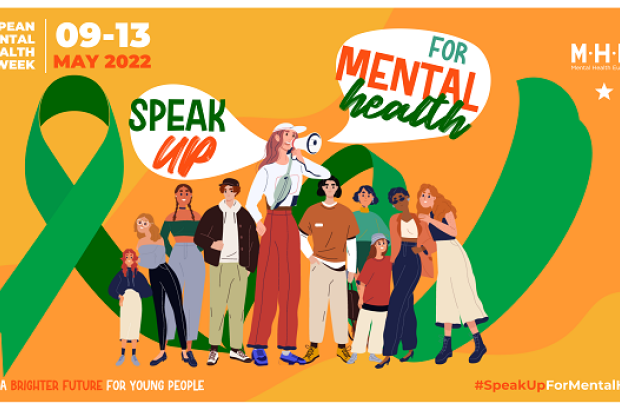- Daily & Weekly newsletters
- Buy & download The Bulletin
- Comment on our articles
European Mental Health Week: Focus on youth for third edition 9 to 13 May
Amid growing mental health distress among young people due to the coronavirus pandemic, the European Mental Health Week is shining a spotlight on youth under the banner ’Speak Up for Mental Health’.
The action week, from 9 to 13 May, is hosted by Brussels-based NGO Mental Health Europe (MHE) with the European Youth Forum (EYF) as official partner.
“It is time to speak up to shape a brighter future for young people,” says MHE in a statement. “Addressing young people’s mental health is not only a question of guaranteeing their wellbeing and ensuring that they can realise their full potential. It is about building healthy and resilient societies.”
The EYF carried out research on young people in the report Beyond Lockdown: the ‘pandemic scar on young people’, which highlighted the deep social, economic and mental health challenges and barriers that young people are facing as a consequence of the pandemic.

Mental health problems among 15 to 24 year-olds have doubled in most European countries during the health crisis, according to the OECD (Organisation for Economic Co-operation and Development).
That’s why MHE is calling for immediate action at European and national level to address the mental health needs of young people across the continent during the Europe-wide initiative.
As the leading campaigner in Europe for the rights of people living with mental ill health, MHE is organising a series of events during the week. It will also present a set of policy asks during the Webinar ‘Mental health and young people: It is time to start and shape a brighter future’ on 12 May.
The NGO is calling for “meaningful changes” to the mental health system with active engagement by young people in decisions about their mental health as well as targeted mental health support at every stage of life.

“If we want to make a positive change and improve youth mental health, we need to take measures now and make the right investments,” says MHE director Dr Claudia Marinetti.
She points out that “young people are our future, and their mental health should matter to all of us including policymakers and decision-makers”.
While youngsters were already experiencing increasing anxiety and depression before the pandemic, the health crisis has worsened the mental health problems of this vulnerable group.
“Social distancing, disruptions in education, insecurity about employment, our planet and our safety all place a strain on our mental wellbeing, and on that of young people in particular,” points out Dr Marinetti.
As well as underlining the need for urgent action, the mental health week is also an opportunity for everyone and especially young people to speak up about all aspects of mental health, say organisers.
To help people participate in the action week, MHE has launched an Engagement Toolkit with materials, including social media assets.
Facts & Figures
Data from various sources shows how the mental wellbeing of children, adolescents and young people has been affected over the past two years.
- 9 million young people in Europe are living with poor mental health
- 74% of young people reported that their mental health worsened during the pandemic
- Even before the pandemic, as many as one in five young people from 15-24 experience significant psychological distress
- Suicide is the second cause of death for those aged 10-19 in Europe
- Compared to other age groups, self-reported mental health issues are more prevalent amongst young people across many OECD countries
- Half of the mental health problems affecting adults start during childhood and adolescence
- Longer-term effects of the pandemic on mental health are likely to magnify pre-existing inequalities affecting those from marginalised backgrounds the most
- Young women’s mental health and wellbeing was notably worse than young men’s
- Young people in marginalized situations (ie LGBTIQ+, transgender, racialised minorities) are worse affected by poor mental health
- Poor mental health during childhood/adolescence disrupts a range of milestones, including identity and relationship formation, educational and vocational attainment, financial independence, and achieving autonomy

















